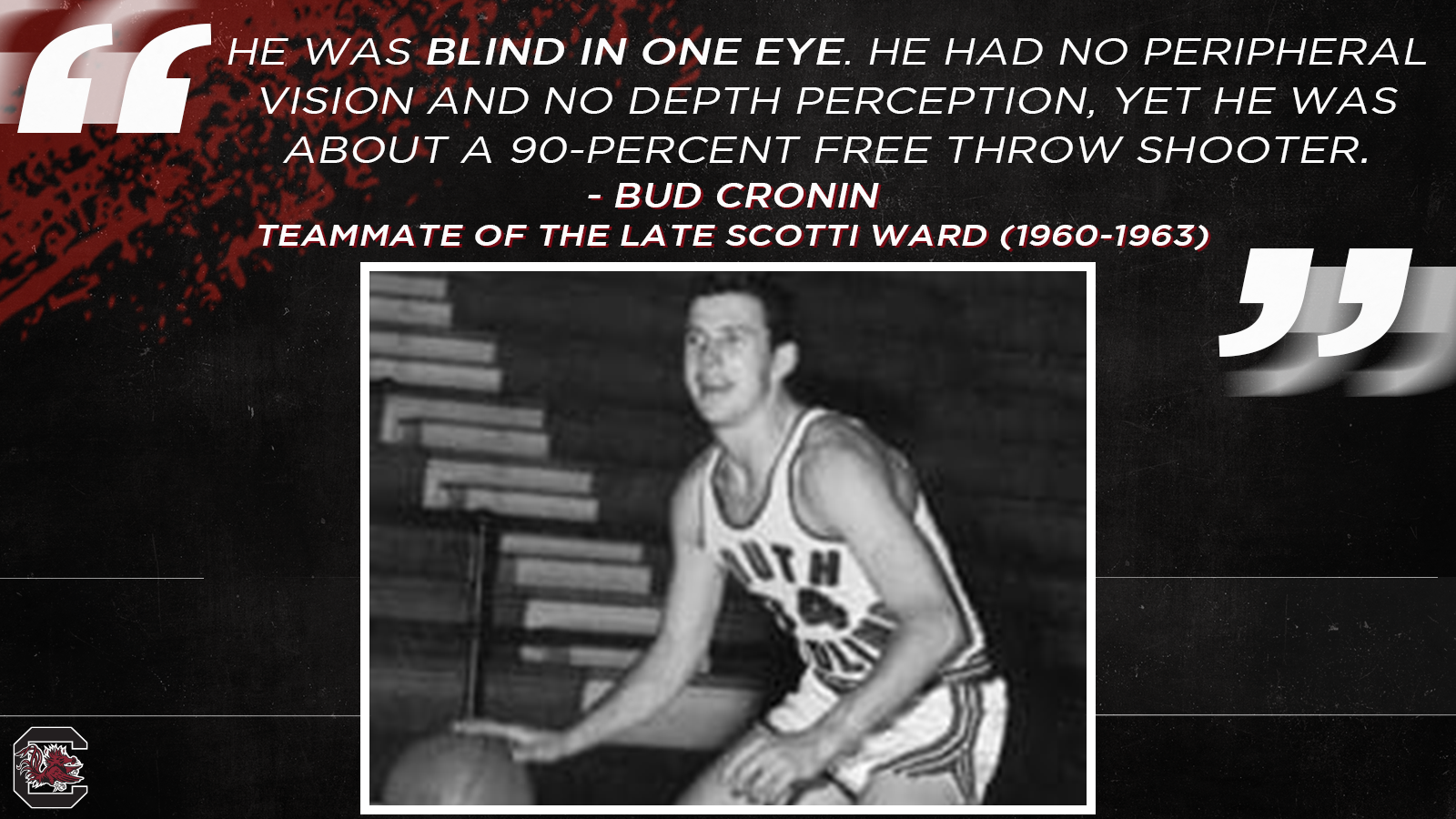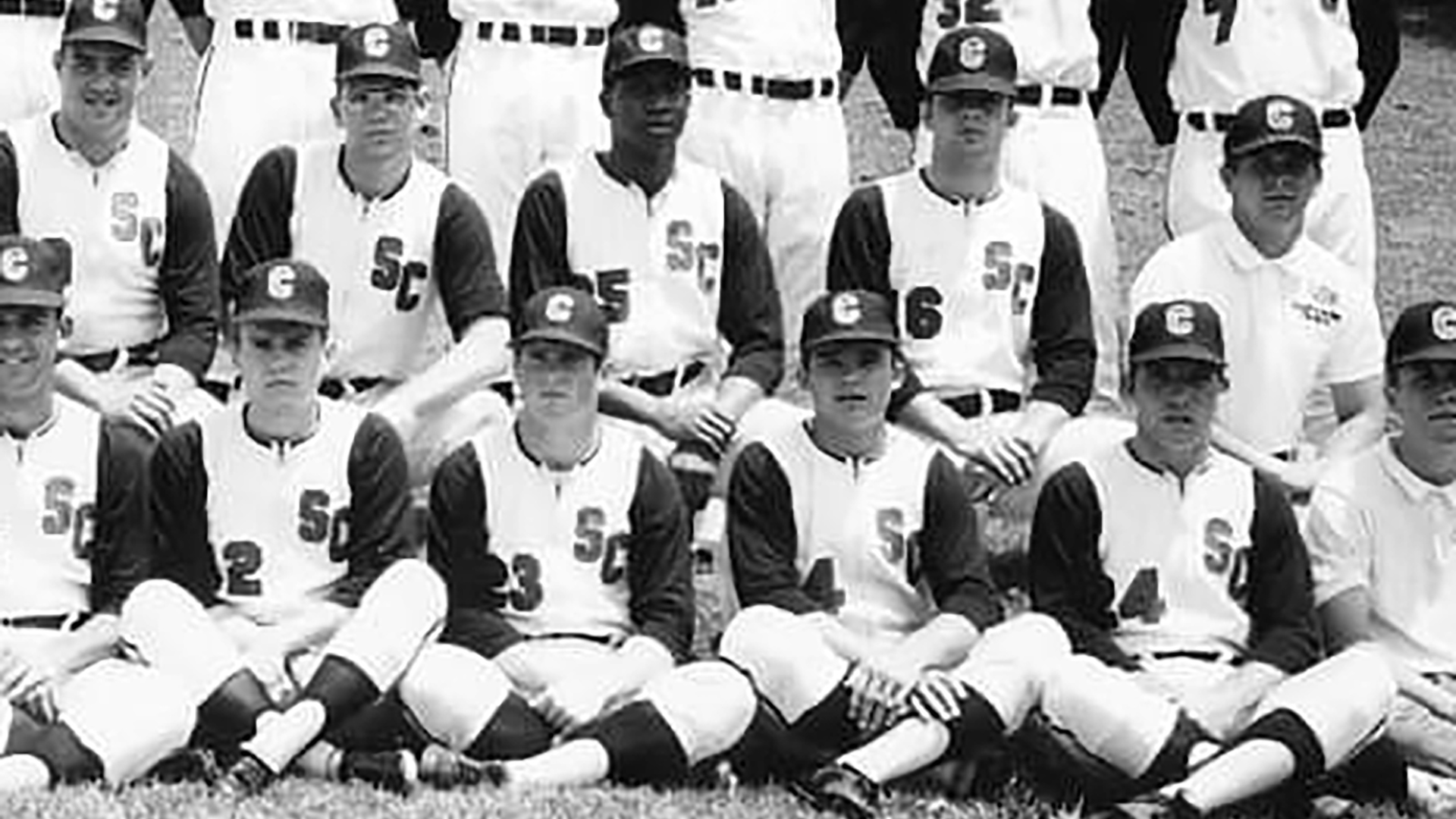
Hall of Fame Profile: Scotti Ward Quietly Overcame Great Adversity
Former South Carolina point guard Scotti Ward (1960-63) was a great basketball player. He was a better person, who overcame a lot of adversity. Ward, who passed away last December at the age of 80, will be inducted into the University of South Carolina Athletics Hall of Fame later this month.
“I’m thrilled that he is being recognized,” said Ward’s daughter, Melanie. “For our family, it’s a huge honor. We’re just so grateful. My whole family went to Carolina, so this is big for us. I wish he were alive to see it!”
Ward was outstanding for the Gamecocks, averaging 14.3 points per game for his career, including a team-high 17.6 points per game as a senior. He also connected on nearly 84 percent of his free throw attempts, third on the all-time list. A 1,000-point scorer, Ward earned second team All-ACC honors in 1963.
Before he put up those great numbers, Ward came from humble beginnings, growing up in an impoverished home, and overcoming a lot of adversity along the way.
“He was born in a house in Kentucky that had no running water or electricity,” Melanie Ward said. “His mother had a third-grade education. He was one of eight children, and my grandmother brought in three others that she raised. He never met his father. They later moved to Valparaiso, Indiana. He always had a feisty personality, and he was very competitive. My dad never met a stranger, and he had a lot of mentors that helped him along.”
Ward was also a coveted cross-country runner in high school, winning 28 straight meets and was recruited to run track at Kansas, but he was in high demand on the hardwood as well.
“Scotti was a tremendous basketball player,” said former teammate and longtime friend Bud Cronin. “He was one of the most highly recruited basketball players in South Carolina history. Indiana University, Michigan State, Kentucky, and Kansas had all recruited him. He turned down Kentucky to go to South Carolina!”
“Scotti didn’t see color. He saw character.”
– Matt Younginer
Cronin noted that Ward could have put up higher scoring numbers, but he was outstanding at sharing the basketball with a lot of other great players.
“He was blind in one eye since he was eight or nine years old,” Cronin said. “They down-played it a little bit because they didn’t want people to know he was blind in his right eye. He had no peripheral vision and no depth perception, yet he was about a 90-percent free throw shooter!
“His senior year, he never came out of a basketball game. He played every second of every game. They ran the pre-cursor of the ‘four corners’ offense (before shot clocks). There was one game that Scotti dribbled the ball around for 12 minutes. He still managed to score over 17 points per game his senior year on a ball-control team!”
“He did all that in an era where there was no three-point line and no shot clock,” said family friend Matt Younginer.

Scotti Ward
After his playing days were over, Ward initially worked in construction back in Indiana. He later enjoyed a successful career in insurance with Allstate and was able to retire at age 60. He was also an avid golfer.
While Ward earned plenty of honors on the court, many people that knew him enjoy speaking about how he performed off the court.
“The accolades alone are deserving of the Hall of Fame,” Younginer said. “Not only was he that talented as an athlete, but his accolades also come as a person. There was no better person to wear a Gamecock uniform from a talent standpoint, but also from a personality standpoint. He could truly light up a room. He was one of the most jovial personalities to come through South Carolina.”
Younginer noted that legendary high school basketball coach George Glymph had sung Ward’s praises as well.
“Coach Glymph went on to be a director of player relations in the NBA and was highly respected,” Younginer said. “When Scotti passed away, George put out a statement that said Scotti was one of the best he had seen play and said he was such a wonderful humanitarian. Glymph said he used to let he and his friends into the (Carolina) Field House to play ball back in the ’60s. Back then, African-Americans weren’t allowed into the Field House. Scotti didn’t see color. He saw character.”
“He was a very generous person,” Cronin said. “He would ride around the block and if he saw a homeless person, I’d see him drop a twenty on him. I’ve seen him invite homeless people into a restaurant to have dinner with us.”
“Financially, he was also responsible for his mother from the time he got out of college,” Melanie Ward added. “He took care of her completely until her death, and his sisters.”
Sadly, his family never saw Scotti play college basketball. It’s bittersweet that he is inducted into the Hall of Fame after his passing, but he is now immortalized among the all-time greats to wear the Garnet and Black for generations to see moving forward.
“He was a heck of a basketball player,” Cronin said. “It’s well-deserved. We’re excited for Scotti and his family.”












